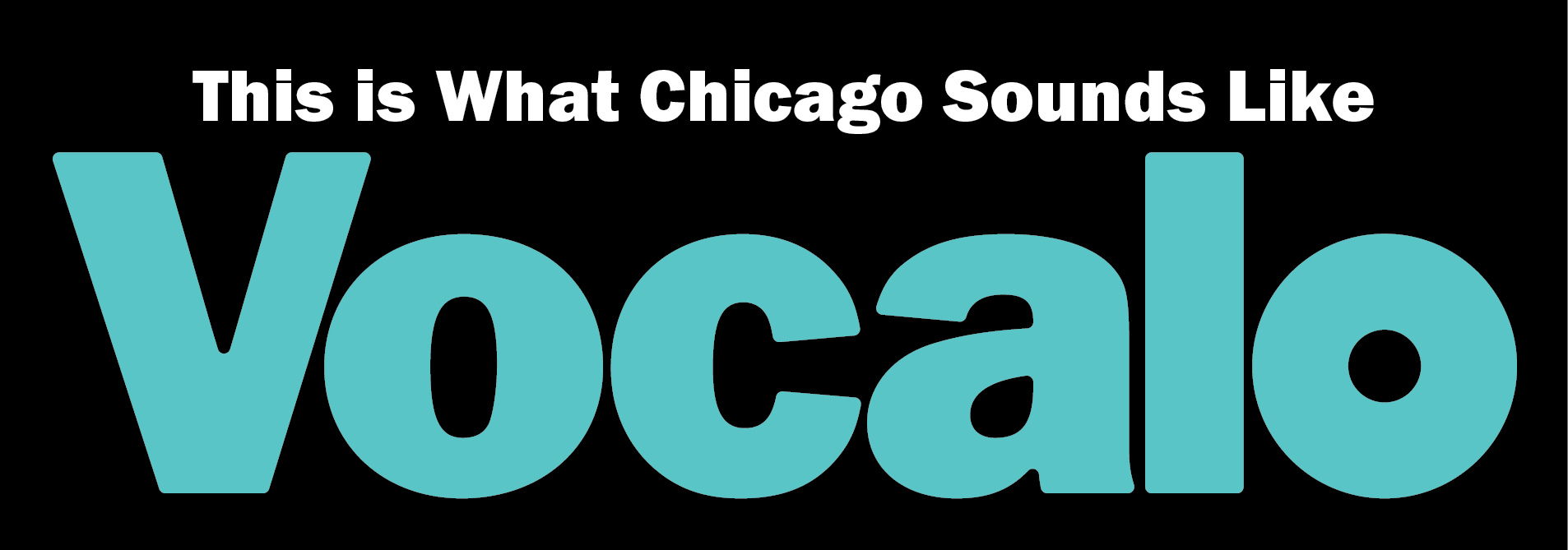For Darling “Shear” Squire, Chicago Has A Family Dynamic
Written by Vocalo Radio on April 7, 2022
“We’re coming together for the purpose of co-creation, and every person is an answer to someone’s question.”
– Darling “Shear” Squire on the importance of performance
Darling “Shear” Squire does not let the city dictate what she can or cannot do — she can, and does, do it all.

Chicago-based dancer and choreographer Darling “Shear” Squire moved from Naperville to the city when she was about 3 years old, hopping back and forth between Chicago and Atlanta. At age 14, she started training in ballet, modern, jazz and African dance. As a “kinetic linguist,” Darling Shear focuses on vintage movement and bridging the gap between the arts’ past and present.
In her installment of “This Is What Chicago Sounds Like,” Darling Shear discusses how she has found her community in Chicago, her favorite music and what she hopes audiences gain from her performances.

Photographed by Morgan Ciocca for Vocalo.
“I’ve come to learn from my journey that we’re all cooperative components to one another.”
– Darling Shear
Introduce yourself, and describe your work in a few words.
I do historical jazz restaging from film and television, from the 1920s through the 1970s. Kind of starting to get into the ‘80s, and more so focused upon vintage movement and, technically, doing that for the purpose of bridging gaps from the days past to what’s now. Often what I’ll do with the music, play, like, the original song, and then, like, if there’s a famous song that has a remix, play them, like, one after the other, like, in a performance so that people can, like, see the origins of songs.
I’ve come to realize that I’m a kinetic linguist. So, the physical language is usually what I rely on. I really try to make it the full range of engaging people’s senses. I do these very, like, different types of performance. I’ve come to know, through my journey, that we’re all cooperative components to one another.
Where in the Chicago area did you grow up? Where in the city do you live now?
I’m from Naperville, and then we moved into the city, I think, when I was 3, and then we hopped back and forth between Chicago and Atlanta. I started studying at 14, and that was when I, like, you know, started to get my formal classic training: ballet, modern jazz, African. I live all over the city; I’m very nomadic. My place is in Hyde Park, but then I have a lot of satellite places around the city, for people who know me.

What are the challenges and the triumphs you associate with Chicago?
Being in Chicago, it was a nice challenge, at times, because this is… you know, also, too, I’m moving through space as a queer-bodied individual. And so, one of my people that I look up to, opera singer Leontyne Price, she speaks about getting to, like, the place that she got to. Her career was from, like, the ‘40s or ‘50s through the ‘80s. And so, being a woman of color in those times doing opera, and I remember there was an interview that I watched with her where someone asked her about that. And she was just like, “I never let those things be a thing. I just went and did it. I knew that this is what I wanted to do. I knew that this was the role that I wanted. And then I just went after it.” Like, the only option was like, “This is what I’m going to do.” You know?
And so I kind of feel like that, where it’s just like, there have been potential moments of contrast. But inevitably, I’ve always figured out how to soften myself so that I can receive and come into alignment with the things that I’ve been desiring and wanting for. I was actually just having a conversation a few nights ago about how things, like, have fallen into place so easily. It’s like, I try not to let the things of the city dictate what I can and can’t do — because I can do it all, and I do do it all!
What do you love about Chicago?
I love Chicago and the family dynamic of it. I love that I have so many groups of friends, and even people that I don’t see in a long time, there still is an appreciation and connection that stays there. There’s this down-home, farm quaintness to Chicago, and just like how people are. Even the transplants. Like, how there’s the, like, “Southern Comfort,” like, Southern charm-like thing to the South, it’s the same thing to the North. We have our own version of that.
How has the city shaped you?
I feel like the city has made me softer. We all come from a wide array of backgrounds and have been through so much. Chicago has really helped me with those things, like, has really helped me, like, have clarity about — to look back on the pre-pandemic days, how we would get together. Like being at Salon-a-Thon, and we often call it, you know, church. And then being at Chances Dances and TRQPiTECA. You know, like, all these parties, but they weren’t just parties. These communities, they’ve grown into such beautiful things. And there was a very lovely momentum. But then also, too, I think we needed to have this moment to, like, come back in and check in with ourselves. A reset, really, like, have that time to reset.


What are some songs you can’t stop listening to right now?
“Here I Come” is by Blue Six. That’s my, one of my favorite groups. “Here I Come” is this really beautiful love song. It says, “Here I come, going to make you feel okay.” And I’m just like, I receive that, like, I’m really in that place. So that song has been scooching me… that song has been scooching me. “Hurricane” by Grace Jones. I feel like that’s kind of, like, a song every now and then I just, like, start singing it, like, to myself.
What do you hope audiences experience during your performances?
The thing about when you come to any dance, you know, any performance, you’re catching the many facets that we as people have within us. And so I try to tap into that. You never know what people have, like, gone through before they’ve came, you know, before they’ve come to the theater, before they come to see your performance. When they come, they’ve come to, like, get away. They’ve come to be, like, transported into this new destination. Have a, you know, grand old time. I, like, hold on to that thing, still. I want people to, like, come and then to receive answers to whatever questions they might be pondering. We’re coming together for the purpose of co-creation, and every person is an answer to someone’s question.

Since 2016, we have been profiling people who give their all to Chicago — enriching us socially and culturally by virtue of their artistry, social justice work and community-building. Take a listen. Read their words. Become inspired.

Interview and audio production by Ari Mejia
Transcription by George Chiligiris
Introduction written by Milo Keranen
Photography and editing for length and clarity by Morgan Ciocca
More from Vocalo:
 Vocalo Radio
Vocalo Radio 









